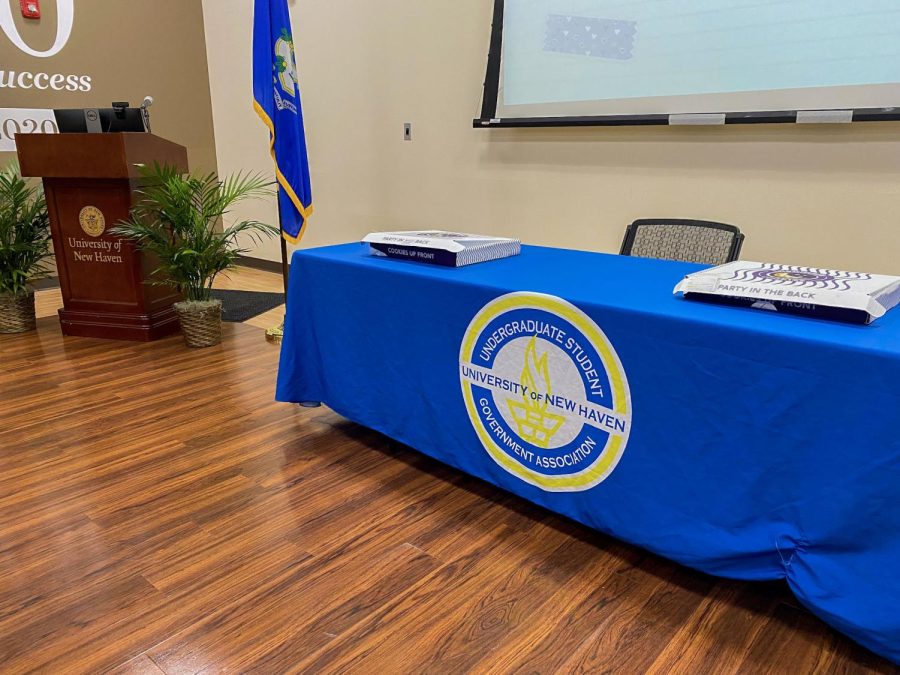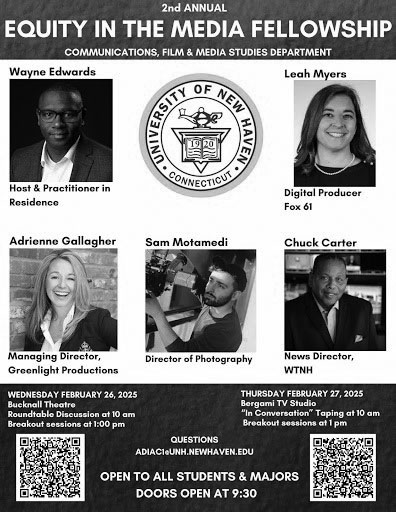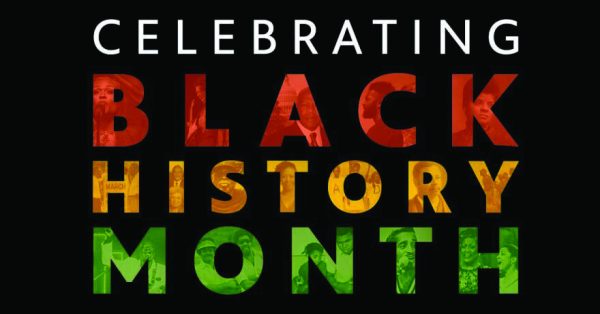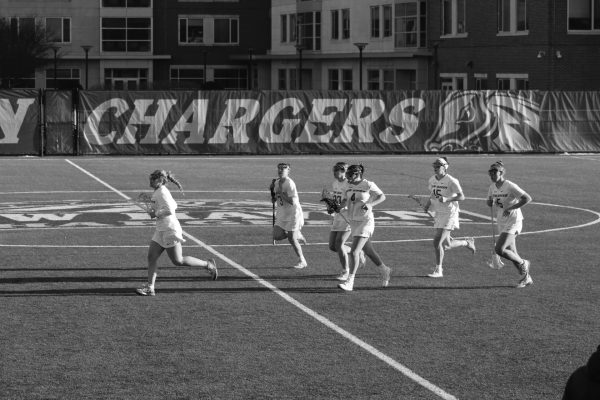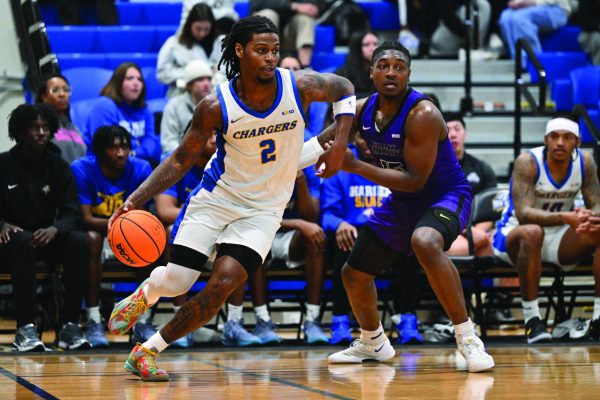USGA hosts Open Forum on first-generation student struggles
Photo courtesy of Charger Bulletin/Presley DePugh.
The table at the USGA meeting, West Haven, Nov. 29, 2022.
Mary Lippa, a senior psychology student at the University of New Haven and the Undergraduate Student Government Association’s vice president of community, advocacy and diversity, led an open forum on Nov. 29 for first-generation and working-class students.
Lippa began the event by reading aloud a quote from former First Lady Michelle Obama: “When I first arrived at school as a first-generation college student, I didn’t know anyone on campus except my brother; I didn’t know how to pick the right classes or find the right buildings; I didn’t even bring the right-sized sheets for my dorm room bed. I didn’t realize those beds were so long, so I was a little overwhelmed and a little isolated.”
In the alumni lounge, chairs were arranged in a circle. The conversation started with first-generation students’ struggles that legacy students may not have. Cora Cogill, a senior business management student and USGA vice president of operations said “…it’s really important to make sure that…[Recognized Student Organizations(RSOs)]…and just the offices on campus realize that a lot of our student population is [first-generation] and working-class students.”
Eliza Hall, a junior clinical psychology student and first-generation college student, said the First Generation Student Association (FGSA) is a new RSO geared to directing first-generation students to university resources while also helping them navigate college. Hall is the president and co-founder of FGSA.
Hall said “A lot of people on campus don’t know we have this resource for first-generation students and I want to really network and let people know [that] if you are a first-generation student, such as myself–even if you are not a first-generation student, we are still an RSO that is here to support you.”
So far, FGSA has held events such as FAFSA Night in October and a Campus Resources Kahoot Night before Thanksgiving Break.
“I’m interested to know the visibility of resources on campus,” said Lippa. “Are people actually seeing them?”
Students at the forum admitted that it took them a while to solve problems that could have been easily solved by going to campus resources, if they knew of them.
The conversation shifted to discussing students who work while attending classes.
“I know a lot of students who have to work full time jobs on top of being a full-time student or work part time jobs because they need the money,” said Hall. “It’s very upsetting to see that they don’t have the time to manage school as well as work.”
Hall also discussed commuter students, especially those who are also first-generation. Hall, who is also a commuter assistant, said “We do put on events for commuters but the thing about commuters is, once their class is done, they don’t want to stay on campus.” She also said that commuters “feel very disconnected from the school.”
Cogill reiterated her earlier message of RSOs and campus organizations being more aware of everyone in the university’s student body.
While much of the forum veered away from first-generation students and focused on other issues about the university, USGA was able to gain a census of the main issues that students cared about. If you have any questions or concerns, reach out to USGA by emailing usgapresident@newhaven.edu; if you are a first-generation student or need help navigating college life, reach out FGSA by emailing fgsa@newhaven.edu.
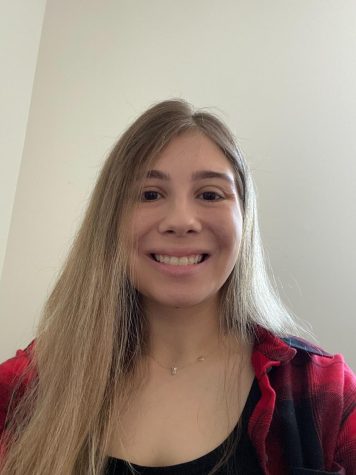
Presley DePugh is in the class of 2024 and majors in Communications with a concentration in TV/Video Production. She is also a Charger Ambassador and a...



